In a remarkable tale that defies all odds, a brave little puppy triumphed over unimaginable hardships to discover happiness and love.
She was found abandoned in a garbage bag, starving and sick, as she had been callously discarded near the river.
But her life would change drastically when a compassionate soul caught sight of her pleading eyes and made the life-changing decision to save her.
Trapped In A Floating Bag
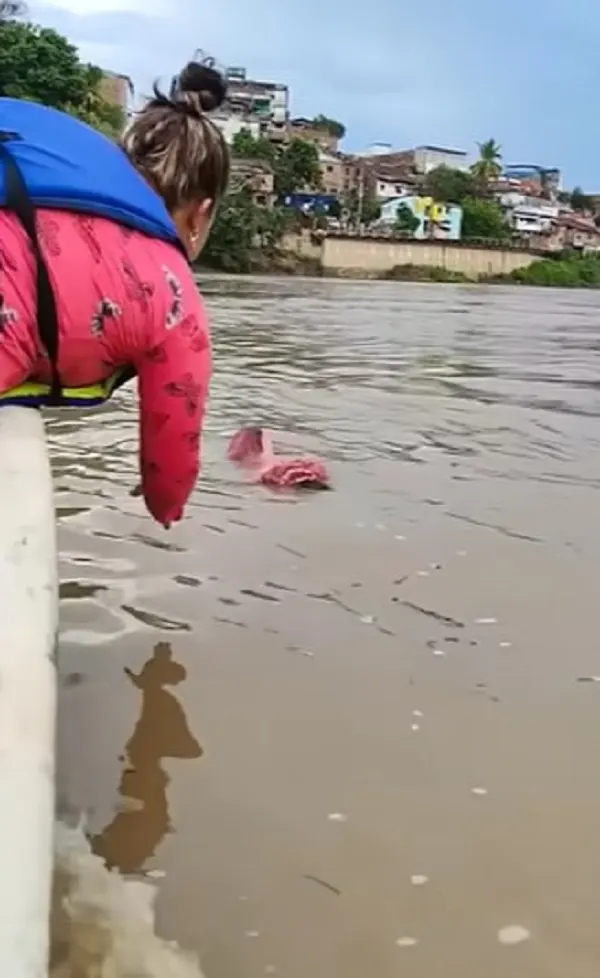
Lost in the shadows of a riverbank, a puppy’s frail body lay hidden within a discarded garbage bag, floating helplessly in the water.
The sight of a poor pup trapped in a bag and almost drowning is truly horrifying to behold.
Starving and weakened by illness, her fate seemed sealed. But the universe had other plans.
In a faithful moment, the eyes of a passerby locked with Magdalena’s, peering through the grimy plastic.
In that instant, a connection was made that would alter the course of both their lives.
A Brave Rescue Mission
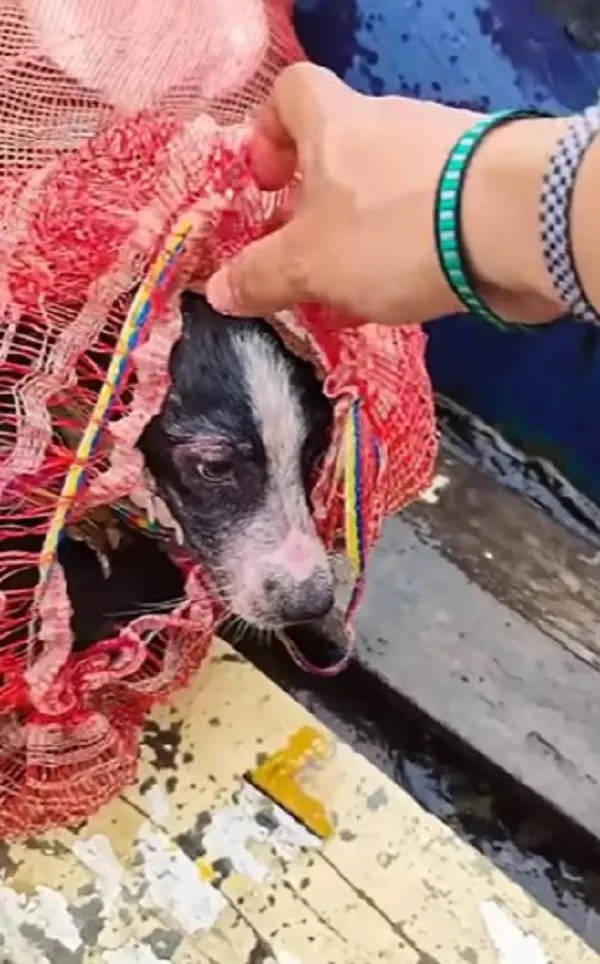
In a moment where empathy and horror intertwined, the rescuer’s heart surged with an unwavering resolve to save the defenceless dog.
Without a second thought, they extended a helping hand and gently swooped up the pup to safety.
In the rescue boat, the team freed the distressed pup from the suffocating confines of her prison.
Rebuilding Trust And Forming Unbreakable Bonds
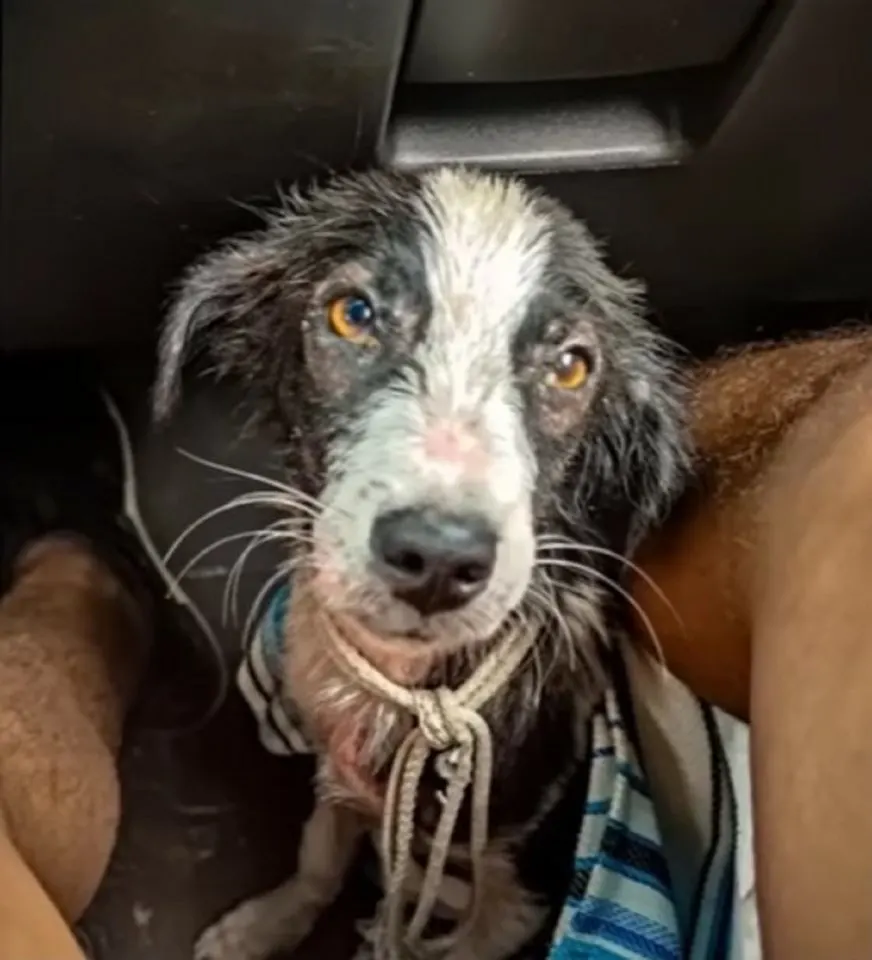
Weak and shivering, the dog’s journey towards healing was not an easy one. Her rescuer took her to the vet where she received much needed treatments. Soon, she would become an unrecognizable, healthy dog!
Initially shy and fearful, she gradually learned to trust again in the care of her new family.
They named her after the very river – Magdalena – that had almost become her grave, a symbol of her resilience.
With love and attention showered upon her, Magdalena blossomed into a remarkable companion, forming an unbreakable bond with her new sister – a little girl who adored her unconditionally.
Magdalena’s Impact On Hearts And Minds
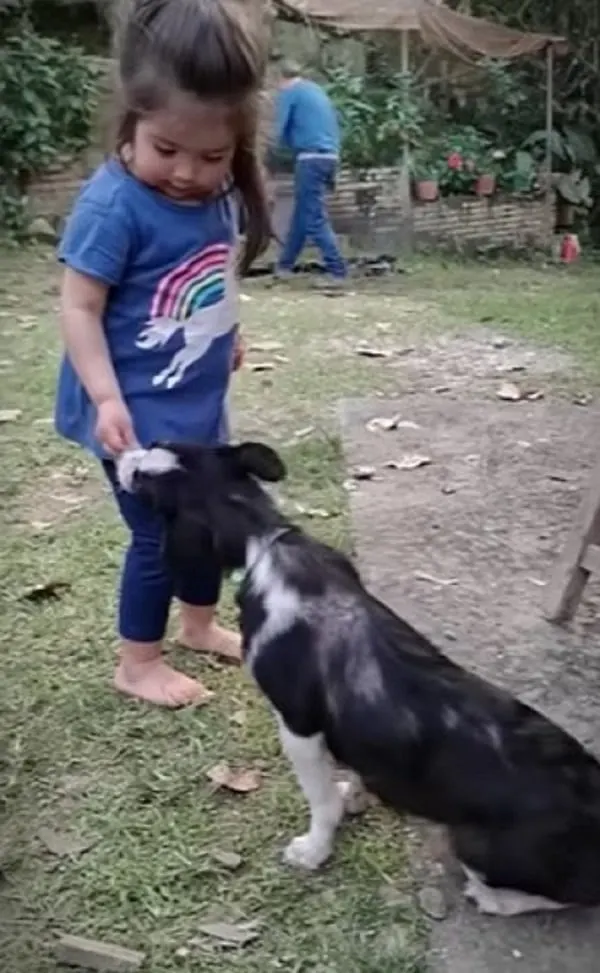
Magdalena’s remarkable story touched the hearts of many, garnering attention far and wide.
This cruel act has shocked and angered many people, leading to a strong demand to expose and condemn animal abuse.
Her family, deeply inspired by her resilience, founded a camp to assist other dogs like Magdalena in finding their forever homes, knowing the incredible joy these animals can bring to their new families. How sweet!
A Hero Worth Celebrating
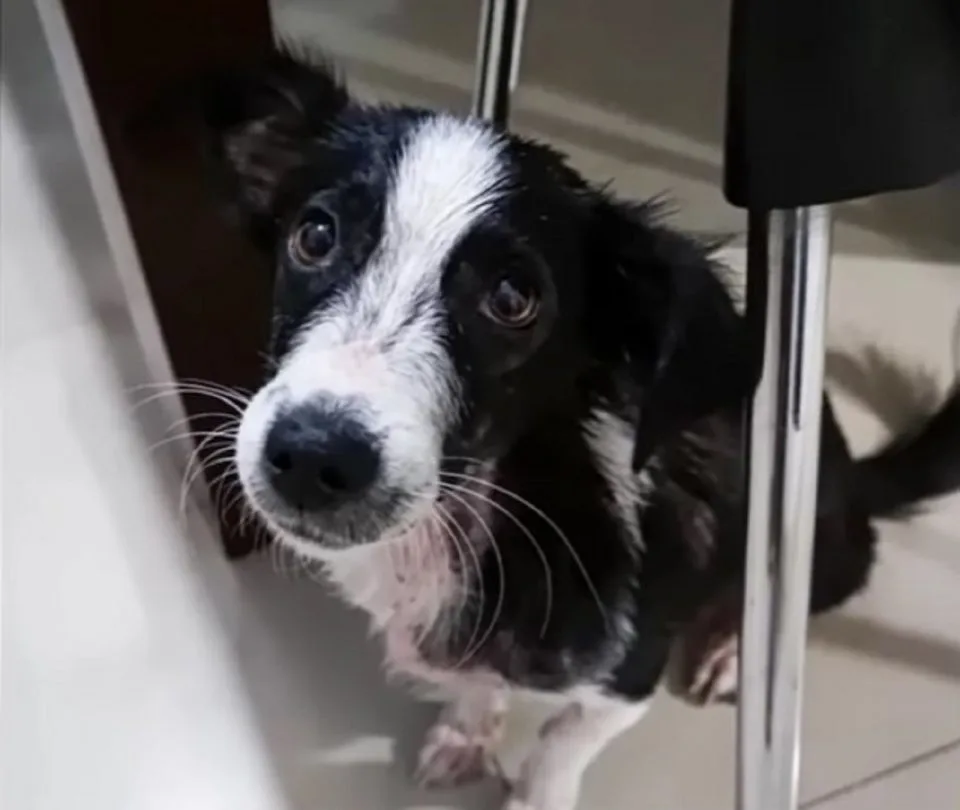
As a symbol of hope and second chances, Magdalena has become an inspiration for those facing their own challenges.
Her unwavering spirit reminds us that abandoned animals deserve our love and support, as they, too, can become cherished companions.
By extending a helping hand, you not only give them a second chance at happiness but may also find a furry companion as extraordinary as Magdalena herself!
Ever noticed your furry friend munching on rocks like they’re a tasty treat? It’s not uncommon for dogs to have a peculiar appetite for pebbles, leaving you puzzled and concerned. As a seasoned dog trainer, you’ve encountered this behavior more times than you can count. Dogs eating rocks may seem bizarre at first, but there’s often a deeper reason behind this seemingly odd habit.
You’ve seen firsthand how dogs explore the world with their mouths, tasting everything in their path. From grass to sticks, and yes, even rocks, can end up on the menu for our curious canines. Understanding the motivations behind this behavior can shed light on your dog’s health and well-being. So, why exactly do dogs have a penchant for chomping on rocks? Let’s dive into the fascinating world of canine behavior to uncover the reasons behind this puzzling phenomenon.
Understanding the Canine Psyche
The Influence of Animal Instincts
Dogs eating rocks can be influenced by their natural instincts. In the wild, animals may ingest minerals from rocks to supplement their diet or aid in digestion. This behavior can sometimes carry over to domestic dogs, where they might chew on rocks out of instinct rather than deliberate intention.
Boredom and Curiosity in Dogs
Boredom and curiosity can also play a role in why dogs eat rocks. When left alone or not mentally stimulated, dogs may resort to investigating and mouthing objects like rocks out of sheer curiosity or as a way to pass the time. It’s important to provide ample mental and physical exercise to keep your furry friend engaged and prevent such behaviors.
Medical Reasons Behind Rock Eating
Nutritional Deficiencies Explored
When dogs eat rocks, it could indicate potential nutritional deficiencies in their diet. Your furry friend may be lacking essential minerals like iron, zinc, or calcium, driving them to search for these nutrients elsewhere. It’s vital to ensure that your dog’s diet is well-balanced with all the necessary nutrients to prevent them from seeking out rocks to compensate for any deficiencies.
Gastrointestinal Issues and Pica
Gastrointestinal problems can also contribute to a dog’s rock-eating behavior. If your dog has an upset stomach, they might instinctively try to soothe it by ingesting rocks. Additionally, pica, a condition where animals eat non-food items, could be a factor. It’s crucial to consult your veterinarian if you suspect gastrointestinal issues or pica in your dog, as addressing these underlying health issues is essential to prevent further rock ingestion.
Behavioral Factors and Environment
The Role of Anxiety and Stress
Dogs, like humans, can experience anxiety and stress, which may manifest in various behaviors, including eating rocks. When dogs feel anxious or stressed, they may engage in unusual activities like rock ingestion as a coping mechanism. It’s crucial to identify the root cause of your dog’s anxiety or stress to address this behavioral issue effectively.
Lack of Mental Stimulation
A lack of mental stimulation can lead to boredom in dogs. When dogs are bored, they may seek out objects, such as rocks, to alleviate their boredom. Providing your dog with interactive toys, engaging activities, and regular exercise can help prevent them from resorting to consuming rocks out of boredom. Remember, a stimulated dog is a happy and fulfilled dog.
The Dangers of Rock Eating in Dogs
Choking Hazards and Dental Damage
Chewing on rocks can lead to choking hazards for your furry friend. If a dog swallows a rock that’s too big, it may get stuck in the throat, causing breathing difficulties, coughing, or even choking. Moreover, the act of biting down on rocks can result in dental damage. Dogs may chip or crack their teeth, leading to pain and potential dental issues.
Internal Blockages and Veterinary Concerns
Swallowing rocks can create internal blockages in your dog’s digestive system. These blockages can be life-threatening and may require immediate veterinary intervention. Sharp or large rocks can get lodged in the esophagus, stomach, or intestines, causing pain, vomiting, diarrhea, or even more severe complications. It’s crucial to monitor your dog’s behavior and appetite for any signs of distress and consult your vet promptly if you suspect rock ingestion.
Preventing Rock Eating in Dogs
Training Methods to Discourage the Habit
To prevent your dog from eating rocks, training is key. First, ensure your dog knows basic commands like “leave it” or “drop it.” Second, use positive reinforcement techniques like treats and praise to reward good behavior when your dog avoids rocks. Third, redirect your dog’s attention to toys or activities they enjoy when you notice them showing interest in rocks. Fourth, consistency is crucial in training your dog; practice these techniques regularly to reinforce good behavior and discourage rock eating.
Altering Your Dog’s Environment
Adjusting your dog’s environment is another effective way to discourage rock eating. Start by ensuring there are no accessible rocks in your yard or areas where your dog spends time. Next, provide plenty of safe and engaging toys to keep your dog mentally stimulated and prevent boredom. Additionally, consider increasing exercise and playtime to reduce stress and anxiety that may lead to rock eating. Finally, create a safe and secure space for your dog when unsupervised to prevent access to rocks or other dangerous objects.
Conclusion
So there you have it – dogs eating rocks can stem from various reasons like exploration, nutritional gaps, or behavioral issues. Remember, it’s crucial to address the underlying causes and keep an eye out for any potential dangers. By focusing on reducing stress, providing mental stimulation, and creating a safe environment, you can help your furry friend steer clear of this risky habit. Training techniques and environmental adjustments play a key role in shaping your dog’s behavior positively. Stay consistent, offer plenty of engaging toys, and ensure ample exercise to keep your pup happy and healthy. With the right approach, you can help your dog kick the rock-eating habit for good.
Frequently Asked Questions
Why do dogs eat rocks?
Dogs may eat rocks due to natural exploration behavior, nutritional deficiencies, conditions like pica, anxiety, stress, or lack of mental stimulation.
What are the dangers of dogs eating rocks?
Dangers include choking hazards, dental damage, and life-threatening internal blockages. Immediate veterinary attention is crucial.
How can I prevent my dog from eating rocks?
Preventive measures include addressing anxiety root causes, providing mental stimulation, training with basic commands, positive reinforcement, and redirecting attention to toys. Ensuring the dog’s environment is free of accessible rocks and offering engaging toys are also effective strategies.
[no_toc]

Hey there, I’m Janet Brooks, a dog-loving student from California. I’m all about helping pups in need, especially those without homes. Me and my awesome friends work together to give shelter and love to stray dogs. Oh, and I also write blogs about dogs to share helpful info.